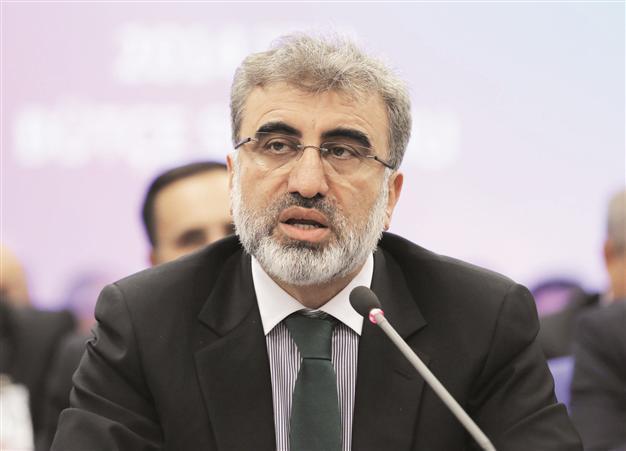Weak currency adds 11 billion lira to Turkey’s natural gas bill
Sevil Erkuş - ANKARA
 The weakness of the Turkish Lira against the U.S. dollar has placed an extra 11 billion lira ($3.82 billion) burden on Turkey’s natural gas bill since the beginning of the year, Energy Minister Taner Yıldız said on Aug. 19.
The weakness of the Turkish Lira against the U.S. dollar has placed an extra 11 billion lira ($3.82 billion) burden on Turkey’s natural gas bill since the beginning of the year, Energy Minister Taner Yıldız said on Aug. 19.Despite the fall in oil and natural gas prices, the drop in the value of the lira against the dollar has added new costs to prices of natural gas and electricity, Yıldız said, while vowing that the government would not yet reflect these costs on citizens or industrialists.
As the value of the lira declines, economic players increasingly have to rely on local sources, he said.
Turkey’s natural gas imports for 2015 are projected to reach 52.2 billion cubic meters (bcm), an increase of 9.6 percent compared to last year, according to the Energy Ministry’s yearly report released in January.
Gas consumption has been steadily increasing in Turkey because of the country’s developing industry and increasing population, and Turkey imported a total of 47.6 bcm of natural gas in 2014.
Turkey’s state grid BOTAŞ is planning to import 20 bcm of gas from Russia via the West Line and Blue Stream pipelines in 2015. Another 10 bcm will come from Iran, while 6.6 bcm will be imported from Azerbaijan, according to projections. The company also plans to import 5.6 bcm from Algeria and Nigeria as liquefied natural gas (LNG), while a number of other private companies will import around 10 bcm from Russia.
Turkey uses most of its natural gas for the electric power sector, which accounts for nearly half of the country’s natural gas consumption. The industrial and residential sectors each account for around 20 percent.
‘No problem in Turkish Stream’
Meanwhile, Minister Yıldız also stated that Turkey and Russia have yet to sign an agreement regarding a 10.25 percent discount on natural gas, but this does not indicate a halt in the huge Turkish Stream natural gas project.
“There is no problem on our side. We can sign it whenever they want,” he said.
The energy minister said there had been an 8 percent drop in Russian gas sales to Turkey over the last 5-6 months, in parallel with Europe, but this can be compensated in the coming months.
Yıldız added that he sent a draft inter-governmental agreement to Moscow on the proposed Turkish Stream project and was awaiting a response.
















